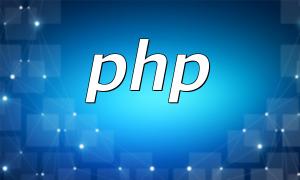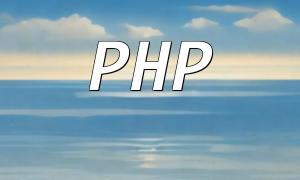When choosing the right PHP framework version update strategy, developers should consider factors such as stability, features, compatibility, and official support. A well-planned update strategy enhances security and performance while reducing risks during system upgrades.
Stability: Different versions have varying release frequencies and maturity levels. Evaluate stability before deciding to upgrade.
Features: New versions often bring new functionalities and performance improvements, which can boost development efficiency and system performance.
Compatibility: Ensure the upgraded framework remains compatible with existing code and third-party libraries to avoid conflicts.
Support: Pay attention to security patches and official support timelines to maintain long-term sustainability.
This approach involves updating only when necessary—such as fixing security issues or adding essential features. It minimizes risks but lacks regularity, making it suitable for projects requiring high stability.
if (version_compare(PHP_VERSION, '8.2.0', '<')) {
// Update to PHP 8.2.0 or higher
}Establishing a fixed update schedule (for example, every six months) ensures the system consistently benefits from security patches and new features.
// Update every 6 months
$updateInterval = 6 * 30 * 24 * 60 * 60; // seconds
if (time() - filemtime(__FILE__) > $updateInterval) {
// Update framework
}A progressive update strategy is a safe and controlled approach for major version jumps. It minimizes compatibility issues by upgrading in smaller steps.
// Upgrade from PHP 7.4 to PHP 8.0, then to PHP 8.2
if (version_compare(PHP_VERSION, '8.0.0', '<')) {
// Update to PHP 8.0.0
} elseif (version_compare(PHP_VERSION, '8.2.0', '<')) {
// Update to PHP 8.2.0
}For applications that must remain available during deployment, a zero-downtime strategy is ideal. By using containerization or deployment tools, developers can ensure seamless upgrades without interrupting services.
// Use Composer to update the framework
composer update --update-with-dependenciesConsider a Laravel application currently running version 8.46 and planning to upgrade to 9.38. A progressive update strategy is recommended:
// First, upgrade to Laravel 9.0
composer update laravel/framework --update-with-dependencies
// Then, upgrade to Laravel 9.38
composer update laravel/framework --update-with-dependenciesBy upgrading in stages, developers can test and validate after each step, reducing the risk of compatibility issues and system downtime.
Selecting the right PHP framework update strategy depends on project scale, maintenance cycle, and team capability. For most teams, combining progressive and regular updates offers an ideal balance between stability, security, and performance.









